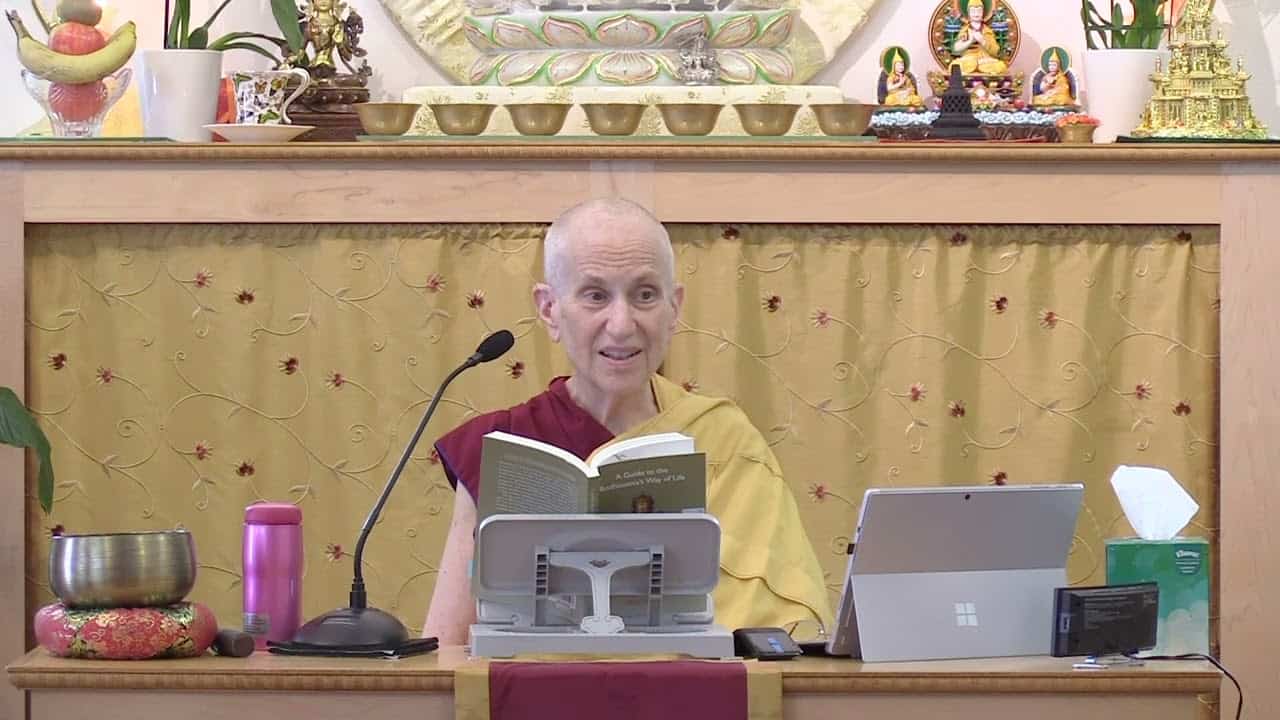Nominally existent self
63 Samsara, Nirvana, and Buddha Nature
Part of an ongoing series of teachings (retreat and Friday) based on the book Samsara, Nirvana, and Buddha Nature, the third volume in The Library of Wisdom and Compassion series by His Holiness the Dalai Lama and Venerable Thubten Chodron.
- Examples to illustrate what goes from one life to the next life
- Image of a face in a mirror
- Reflection of moon on a clear vessel of water
- One moment of an oil lamp flame to the next moment
- Masters teaching disciples
- Impression of a seal on wax
- Recorder
- Merely designated I
- Self and the aggregates
- Like a dream, like an illusion
Samsara, Nirvana, and Buddha Nature 63: Nominally Existent Self (download)
Contemplation points
- What was the Buddha teaching us by presenting the twelve links? How does the interconnection of the twelve links lead to this understanding? Describe this in your own words.
- Why do we get so stuck, thinking there is someTHING that goes from one life to the next? How does a deeper understanding of karma and the dependent arising of these links help to overcome that misunderstanding?
- Ven. Chodron explained that we are constantly trying to control our external world. We think that happiness is in something “out there” and that we need to protect this “I.” But we never question if this perception of “I/Self” is correct. Note some ways in which you believe happiness and suffering to be in external objects? How often do you really question that view? What unhappiness has resulted in your own life from holding to this view?
- Spend some time considering that you exist only because the causes and conditions are complete, so a result arises. There is nothing more than that. What are the causes and conditions of your existence? Similarly, consider that you are an appearance due to karma and that you are a “merely designated person.” Does thinking in this way shake up the way you view yourself? How might holding this view change the way you engage with the world?
- Staying with this awareness of not existing inherently, how does this change the way you relate to an emotion, such as anger? Where is the anger? What is it?
- What is the difference between something being an illusion and something being like an illusion? What is the Buddha saying about things being like an illusion and why is it important to make this distinction?
Venerable Thubten Chodron
Venerable Chodron emphasizes the practical application of Buddha’s teachings in our daily lives and is especially skilled at explaining them in ways easily understood and practiced by Westerners. She is well known for her warm, humorous, and lucid teachings. She was ordained as a Buddhist nun in 1977 by Kyabje Ling Rinpoche in Dharamsala, India, and in 1986 she received bhikshuni (full) ordination in Taiwan. Read her full bio.


